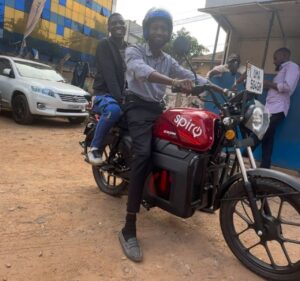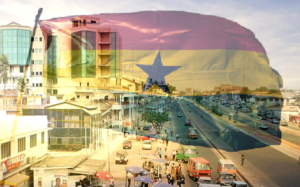$75 Million Boost, Powers Africa’s Electric Motorbike Venture: FEDA Invests in Spiro to Drive a Transportation Revolution

In KIGALI, Rwanda – Africa’s journey toward cleaner transport has taken a major step forward. The Fund for Export Development in Africa (FEDA), the impact investment arm of the African Export-Import Bank (Afreximbank), has announced a $75 million strategic investment in Spiro, the continent’s fastest-growing electric two-wheeler company.
The partnership, unveiled this week in Kigali, aims to accelerate Africa’s electric mobility transition, strengthen local manufacturing and reshape how millions of Africans move, work, and live. A bet on Africa’s roads and its people.
![]()
Founded in 2022, Spiro has rapidly built the largest battery-swapping network in Africa, with over 60,000 electric motorcycles and 1,200 battery-swapping stations. Its model replaces the need for long charging times with quick battery exchanges, a crucial innovation for riders who rely on daily mobility for income, such as from delivery workers to motorcycle taxi operators.
In consideration of many African families, two-wheel transport is a transport business or transit survival that is more than convenience. Lower running costs on electric bikes could ease household expenses, freeing income for food, school fees and healthcare. Cleaner transport also promises better air quality in congested cities like Nairobi, Kigali, Lagos, etc., where motorcycle emissions have become a public health issue. This is an investment in a scheme that impacts livelihoods. This affordable and sustainable mobility can change family economies, urban atmosphere and the future of self-employment generation. Breeding culture of socioeconomic change on the streets.
Electric bikes are already reshaping urban culture. Riders once known for the hum and fumes of petrol engines are now embracing the silent whir of electric mobility. In some cities, e-boda and e-okada hubs have become new gathering points for youth entrepreneurship.
In respect to women who are often sidelined in transport jobs, the entrance of lower maintenance and reduced fuel motor-bike dependence, could open new spaces in this traditionally male-dominated sector. In rural areas, small-scale traders and healthcare workers stand to benefit from cheaper, cleaner mobility that can bridge distances to markets and clinics. Ripple effects for business and industrial sectors.


Economically, the investment signals confidence in Africa’s green industrial base. Afreximbank’s broader automotive strategy aims to localize vehicle manufacturing, create regional supply chains, and reduce dependence on imported second-hand motorcycles that dominate African roads.
By partnering with Spiro, FEDA is also betting on energy innovation. Battery-swapping networks could become part of a larger distributed energy grid, integrating renewable sources such as solar and wind to power both transport and off-grid communities. Dr. George Elombi, Afreximbank President and FEDA Board Chair said – “this partnership is about building ecosystems, not just companies. It lays the foundation for African-made solutions to African challenges”.
The essence of politics, policy and power: Spiro-FEDA deal comes as African governments adopt pro-electric vehicle policies to curb fuel imports and meet climate commitments. Rwanda, Kenya and Ghana have rolled out incentives for EV assembly, battery recycling and infrastructure investment.
As these frameworks mature, partnerships like FEDA-Spiro may become templates for how African institutions finance Africa’s clean-tech revolution, reducing dependence on external capital. Nevertheless, the transition will test grid capacity, regulation and equitable access, to ensure that the benefits reach rural and lower-income communities, not just urban elites.

A social transformation in motion at the street level, in which the effects could be profound. Electric mobility could reshape how Africans earn, connect and breathe. A delivery rider’s day might no longer depend on petrol prices or engine breakdowns; a family’s commute could be quieter and cheaper; a city’s skyline, a little clearer.
Spiro’s CEO – Gagan Gupta summed up the ambition –“we are not only electrifying bikes, we are electrifying opportunity. Africa’s mobility story is changing, and it’s happening fast”. A continent on the upwardly progression, by its economic developmental dictates.
Africa is issuing a statement that is more than a technology shift. It’s a story of self-determination, of industries born at home, powered by local talent and capital. The $75 million investment marks a vote of confidence in Spiro’s business model and in Africa’s ability to steer its own sustainable future.
As the continent’s atmosphere grows cleaner and streets quieter, this new entrance carries hope for every household, business and community, along on endless rides.






